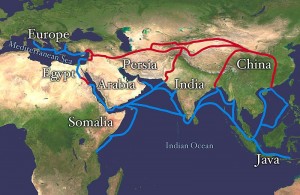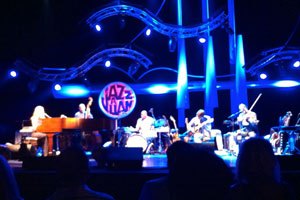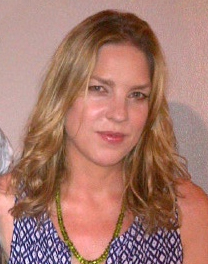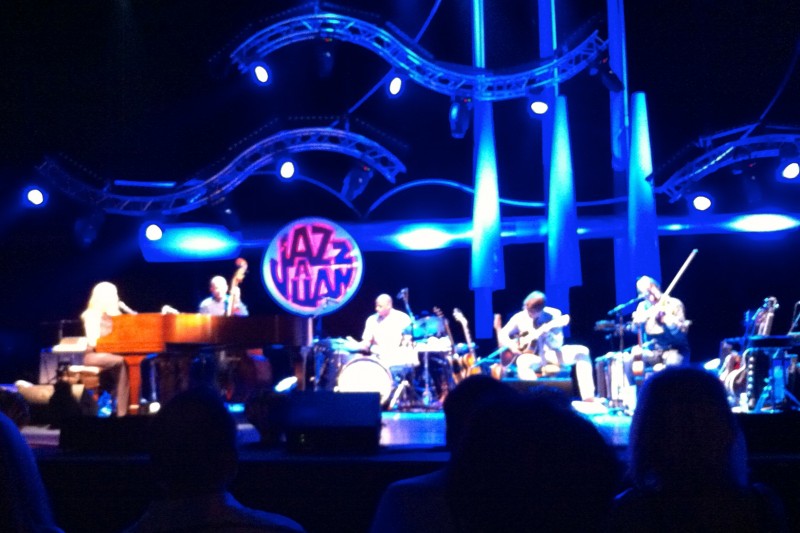Tar! Philippe says. You can really taste a lot of tar.
As I swill the crimson liquid in my mouth, I taste it, too. Tar. But seeing that the label on this bottle looks like a page from a black-and-white comic book, clipped out and slapped on the emerald-coloured glass as a joke, the wine is a lot better than I expected. Or maybe I’m not expecting much because I know the wine comes not from France, but from India.
It’s no good, our host declares, setting his wine glass back on the patio table. Karl’s our neighbour from Vienna, a scruffy-bearded, intense sort of chap who, when not watching the German bond markets is sorting out his investments in various Eastern European vineyards. The bottle was a gift from a friend, he says vaguely. We pour the remnants into a red plastic tumbler.
Karl lifts the next bottle from the table. This one’s more interesting, I think. His English is precise and clipped. Chateau Nine Peaks. It has won all the awards.
Indeed, the label on this bottle has all the right features, including an award-winning gold stamp in the corner – even if Philippe then points out that the label of this French-sounding wine calls itself Reserva 2011. Reserva, he says, is a Spanish word, not French.
Karl explains the wine comes from China. He pours shallow glasses for Philippe and me, this liquid appearing more serious and less flamboyantly fuchsia than the Indian variety. High in the branches of the parasol pine trees that dot Karl’s property, an orchestra of cicadas strums their rhythmic chorus. It’s still hot this early evening, and beads of sweat appear on our host’s forehead. From time to time he inserts a napkin through the gaps of his button-down cotton shirt to wipe his stomach.
Karl’s terrace overlooks the lofty olive tree in front of our home Bellevue, the neat columns of her red-tiled rooftop, and the Mediterranean bay below with its fleet of moored yachts. He pours a glass of the Chinese wine at the same time for Peter, who was sitting with him and a calculator when Philippe and I arrived. Peter has the wide cheekbones of a Russian and, when I ask, describes himself obscurely as Karl’s former business partner. We’re joined shortly by a clean-cut guy called Jamie, again without any acknowledged connection; he later describes himself to me as an American banker from LA. English is our common language.
Lots of red fruits and some decent tannin, I say of the Chinese wine. And then I actually hear myself saying, with a note of surprise, that I like it.
That’s the right answer. Karl now tells us he is invested in this vineyard. The estate is run by a Chinese-speaking Frenchman and a French-speaking Slovak, but the group is getting skinned by the authorities. Inspections, changes to regulations – the usual stuff that hinders foreign investment there.
Karl’s hurrying us along. The third wine is the most interesting, he says over the incessant chant of the cicadas. Its velvety, ruby nectar expands before us on the patio table in a flat-bottomed decanter. There is no bottle. The wine, Karl says, comes from Russia.
I drink my Chinese wine to the bottom – What else can you possibly do in front of the owner? – and Karl pours the Russian tastings. Once in my glass the wine takes on a dark garnet colour, a deep purple even.
Philippe summons his knowledge from our recent wine dégustations in Bordeaux. The wine must be very young, he offers on account of its colour. We sip, swill and swallow. The taste is remarkably fruity and round, stitched in by hints of pepper and delicate tannins and alcohol. The aftertaste blooms and lingers. It is better than the Chinese wine.
Karl is keen for our reactions. The wine is young, yes, he says, only a 2012. But imagine where it is going. And the price point is good – about $40 a bottle – but the brand is not advertised. Sochi, he thinks, could be a big marketing opportunity.
Are you involved in this vineyard? I ask.
No – not yet, he says. But I want to be. We’re talking.
Philippe voices the idea that’s on my mind, too. Wouldn’t it be great to bring some of this Russian wine back to Toronto? Russian wine – really good Russian wine – in Toronto. Can you imagine everyone’s reaction? Karl promises to send details.

We linger here for some time in this unlikely quintet, gathered around a patio table beneath parasol pines and overlooking the Mediterranean, the cicadas in full crescendo around us – and I cannot stop thinking I’ve stumbled onto the world’s new Silk Road. Like its 13th-century predecessor, the Cote d’Azur’s Silk Road is partly about trade, but it’s even more promising in the cross-fertilisation it brings to cultures and ideas. This area, the French Riviera, has become one of the world’s crossroads. It’s a place where you meet people – people you might never otherwise meet because they spend the rest of their days in places you never go. But here your lives intersect, and you stop and drift, and together you drink wine, even the wine of a friend or business partner, and take the full breadth of the experience back with you to your homeland.
Soon Karl’s wife joins us. Yana is Russian. The two of them met decades ago, he once told me, because this woman with the riotous, black hair and gravelly voice was his caviar dealer. Another bottle is produced – this one an Austrian version made by the same folks managing the Russian operation – and I become keenly aware of the usual course taken by an invitation to our Viennese neighbours for a simple apéritif. Drinks explode almost magically into a full-on, four-course feast out of seemingly nothing, until at 1:00 a.m. we pour ourselves out their front gate and into ours across the street.

But Philippe and I are otherwise engaged tonight with something a bit closer to home – our Canadian home, that is. We’re off to see a fellow Canadian who has crossed the seas to share her musical visions with this cross-section of the world. Diana Krall is tonight’s star at Jazz à Juan, the outdoor jazz festival that descends here every July, just over the hill of the Cap d’Antibes.
Her concert is glorious, teeming with prodigy, imagination and musical humour, but our real thrill comes afterward. Philippe and I have two passes for the “After Show” that, we are told, will be very private.
Diana Krall’s After Show is so private, in fact, that it’s just the three of us. We Canadians meet the fellow Canadian because here, at the world’s new crossroads, we are united by our first homes.

She meets us in a makeshift lounge area wedged among fellow band members’ trailers. She already has changed out of her long black gown into a silky blue jumpsuit, and her face is washed free from stage makeup. She’s fresh and lovely and kind, if not honourably tired after a thrilling, couple-hour performance.
She’s in town with the six-and-a-half-year-old twins while Elvis is on his own tour, she says. Last night she played the Montreux Jazz Festival in Switzerland, and tomorrow is fortunately a day of rest. She and the kids have opted for a middle-of-the-row hotel here rather than one of the super-fancy, famous ones because, well, kids do better when they don’t have to confine their pool time to the pre-designated “splashy-splashy” hours.
Philippe and I again have the same thought: Why not invite Diana and the boys around to Bellevue for lunch and a swim? It’d be a far more comfortable way station for this Silk Road traveller and her little ones – and it’s an idea that he actually suggests to the superstar, quickly followed by the unfortunate fact that our family is headed to the mountains early in the morning.
The impossibility of the invitation makes it easier to accept for her next journey along the Côte d’Azur’s trade route. And early the next morning, while I curse the golf game that’s taking our family away from Bellevue on the critical day, we pile into the car.
The annual golfing event is held at Château Taulane, an elegant 18th-century manor home-turned-hotel situated a couple hours’ drive along winding and gently inclining roads into the French Préalpes. Philippe’s golfing partner is our dear friend Walid. The Frenchman’s alone at the moment, holding the fort here in France while his wife travels with their kids to visit relatives in, of all places, Toronto.
Up in the mountains, we surely will be surrounded by locals, not the world’s wine importers and waylaid artists. To enter the golf event, after all, you need to have certain papers. And the weekend’s golfing sponsor is none other than Louis Julian et Fils Joailliers. Any French business called “X et Fils,” where X is some guy’s name followed by the ubiquitous “and Sons,” means the business is probably a distinguished outfit handed down from one generation to the next over the past century and a half. So is the case with this sponsor. But then Louis Julian et Fils is a jeweler.
Eight-year-old Lolo and I spend our day scouting the area because the hotel’s pool is the sort that would require “splashy-splashy” time for our experience to be a successful one. But we join the golfing masses for dinner.
Fortunately we see a few other kids among the white tablecloths and stemmed glassware. French kids. We organize the tables so that Lolo is seated between ten- year-old Victoria Rose and me.
First issue is the menu. Among its elaborate poetry I know Lolo will eat only the last stanza: dessert. The waiter proposes an alternative menu for the children. Victoria Rose accepts the substitutions with impeccable grace, even if I sense her spirit is depleted by the changes. She bows her cherubic face forward, long sandy hair dangling gently before it.
Do you prefer the fish? I ask.
Yes, she says, her dark eyes expressive, even sparkling.
And do you like foie gras? I wonder, knowing I’ve gone a step too far asking about the adults’ first course.
Yes, of course, she says, with a polite smile. It turns out Victoria Rose also likes oysters, mussels and Brussels sprouts.
Is there anything you really don’t like? Have you ever tasted peanut butter?
I’ve never tried it, she says, but I’d like to. But I don’t really like Nutella.
I am speaking with a French child who may be French but who seems hardly a child. And the longer we talk, the less traditional French she seems either.
First off, her English is impeccable. She credits her single year of instruction at Nice’s international school. Nice – a major urban hub along the new Silk Road. She finds the school’s methods of investigation far preferable for learning than the traditional, strict instruction in her country. She no longer needs to sit tall at her desk all day, shoulders squared, hands placed gently on the surface in front of her. If she feels like slouching in a chair while reading, she slouches. But the usual French way, she says, is still easier than some. One classmate jumps to her feet whenever called upon, clasping her hands at her breastbone, elbows splayed. She comes from Russia.
The world does journey to the Côte d’Azur – even at this young age.
So what about Astérix? I ask her. I’ve been learning this summer how all French children adore this homegrown comic strip, even if it’s through ample encouragement from their parents.
Victoria Rose turns up her sweet little nose at Astérix.
As the image of the typical French childhood blurs before my eyes, I must remember where I am in France. This place is special. It has many influences.
Shortly my own childhood in the US Midwest resurrects itself in the form of the eight- track tape. Somehow Philippe’s golfing partner Walid and I are onto these clunky tapes from the 70s. We’re talking Carly Simon and The Bee Gees.
My memories of the eight-track come from the boxy houseboat my family floated down the Mississippi River each summer. Walid recalls the eight-track tape player in his family’s Pontiac Safari station wagon.
You remember those? he says. The ones with the back windows that went down?
Yes, I do remember.
And the wood paneling on the outside? It was so horrible!
Yes, I do remember.
And the bench seat at the rear of the station wagon – the one that faced backward?
Yes, I do remember. And I can picture the spats Walid describes with his sister, the little scraps about who-gets-to-sit-on-the-back-seat-this-time-because-you-got-to-sit-on-that- seat-last-time. I’m lulled into remembering similar battles with my own brother, right there on the steaming asphalt of the Sears parking lot, no doubt Bay City Rollers playing over the car’s back speakers.
Except that, of course, Walid stops my reverie short. Our friend’s recollections aren’t the same as mine. He didn’t grow up in the US Midwest. His memories come from Saudi Arabia.

